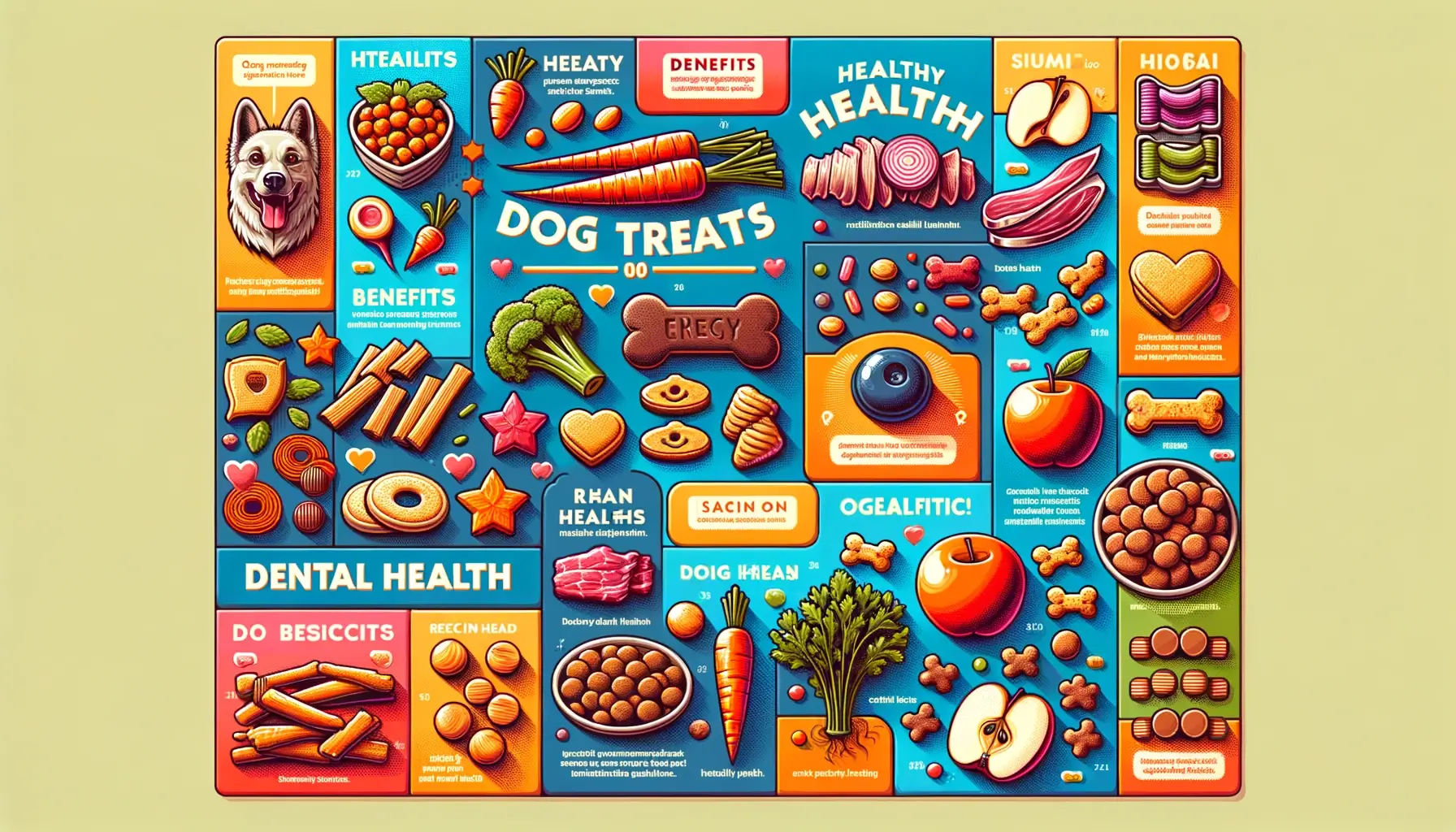Grease ingestion can cause vomiting, diarrhea, pain, and dehydration in dogs. Here are some key takeaways:
- Treatment involves inducing vomiting if ingestion was recent, providing fluids, controlling symptoms with medications, and nutritional support.
- Preventing access to fatty foods like butter, oils, meat drippings, chocolate, and scraps is crucial to avoid grease ingestion.
- Dogs are naturally attracted to the smell and taste of greasy foods, so keeping counters and trash free of these items is important.
- Train dogs to avoid counter surfing and stealing food.
- If a dog eats grease, induce vomiting if it was recent. Provide fluids, symptom relief medication, and bland diet.
- Seek vet help if symptoms are severe or persist more than a day or two.
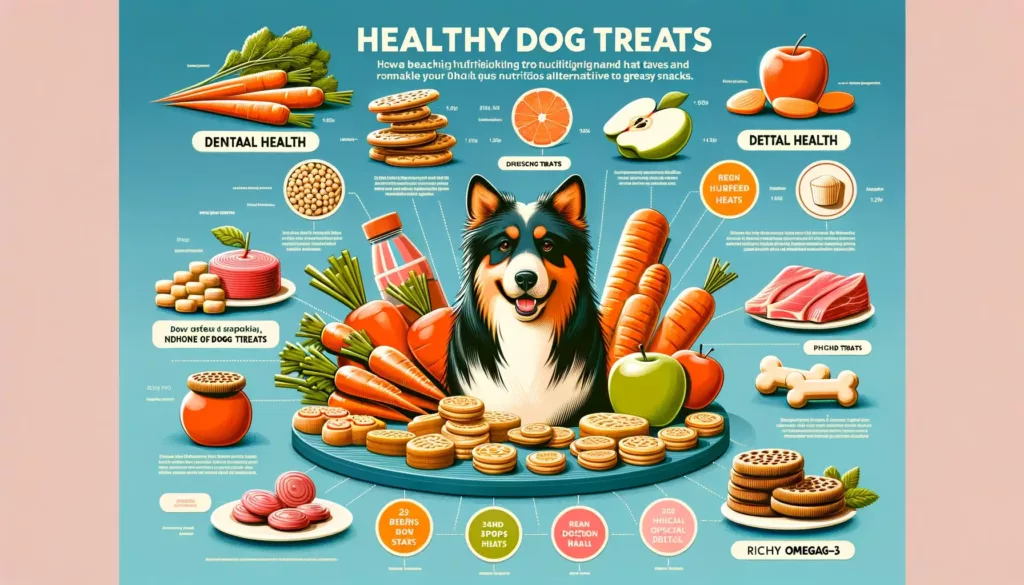
What is Grease?
Grease is any thick, oily substance, usually of animal or vegetable origin.
Common sources of grease dogs can access:
| Source | Description |
|---|---|
| Cooking oils | Olive oil, vegetable oil, canola oil |
| Meat drippings and fat | Fat/grease from cooking meat |
| Butter and margarine | Contains saturated fat |
| Gravy and sauces | Often contain animal fat or oil |
| Greasy food waste | Discarded fatty food scraps |
How Dogs Get Into Grease
Dogs rely heavily on their sense of smell and are naturally drawn to the aroma of greasy foods. They may get into grease by:
- Counter surfing to steal unattended fatty foods
- Breaking into trash cans with discarded greasy food
- Stealing greasy food directly from plates, pans, countertops
This can lead to them consuming large amounts of grease quickly.
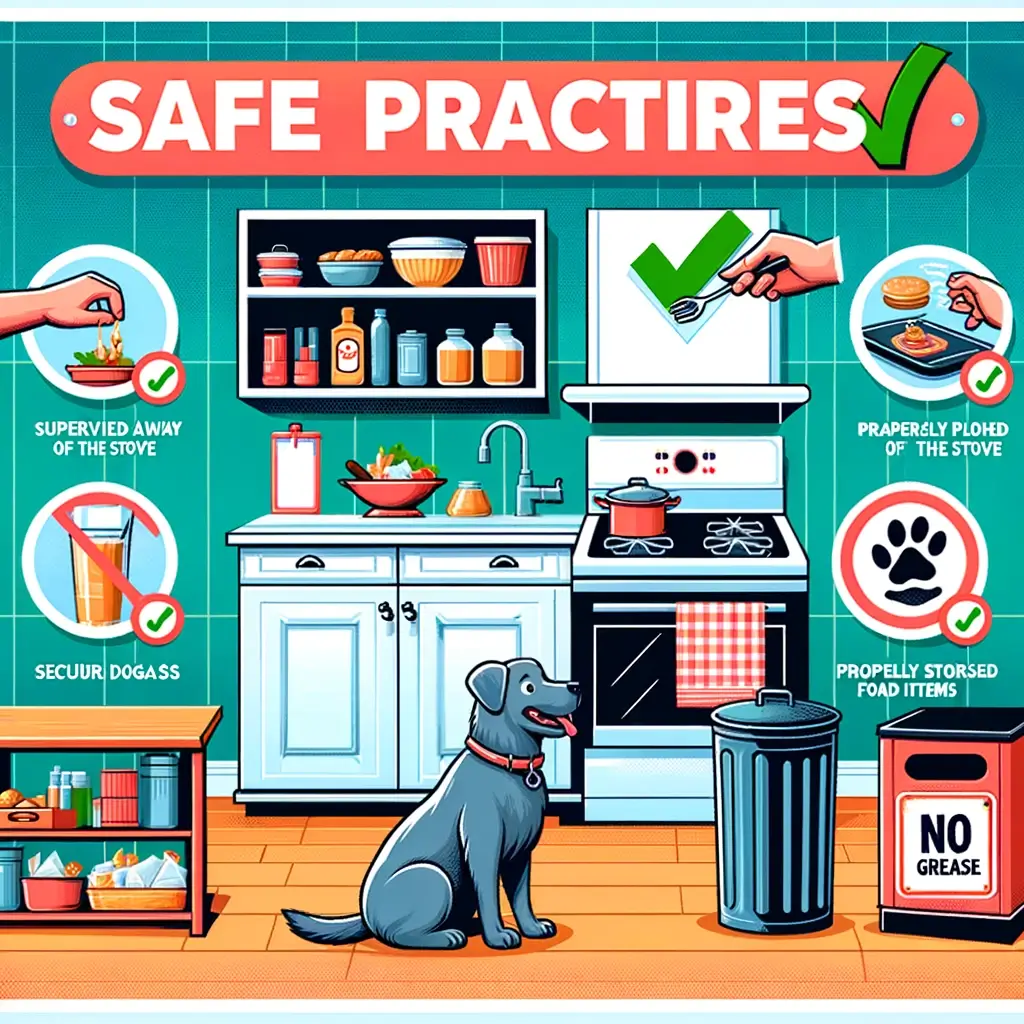
Symptoms of Grease Ingestion
Consuming excessive grease and fats can cause:
- Vomiting
- Diarrhea
- Abdominal pain
- Loss of appetite
- Lethargy
- Dehydration
Seek veterinary attention if symptoms last over 24 hours or seem severe.
Treating Dogs for Grease Ingestion
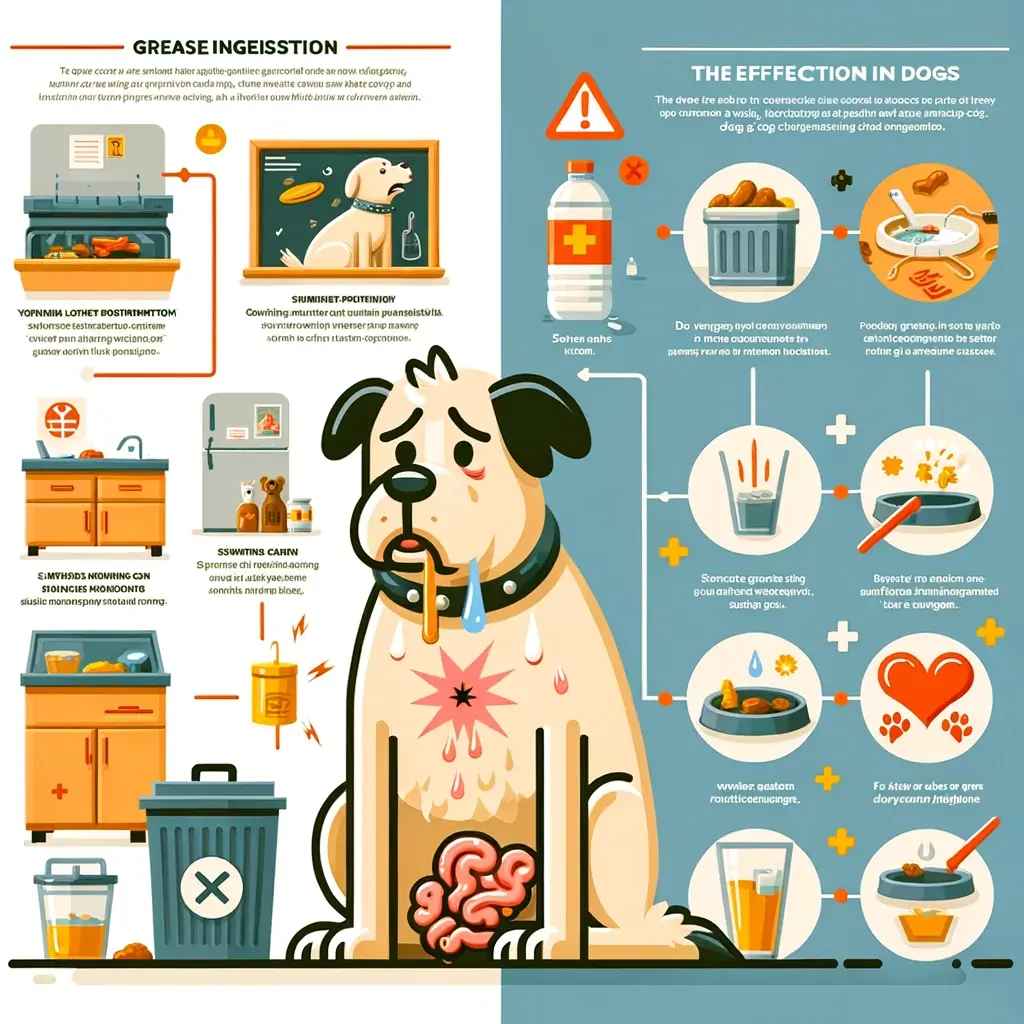
If a dog eats grease, take these steps:
- Induce vomiting if ingestion was within last 2 hours
- Provide fluids to prevent dehydration
- Give medications to control ongoing symptoms
- Low-fat diet to support gastrointestinal system
Most dogs recover fully within 1-3 days of rest and supportive care. Seek prompt vet attention if symptoms are concerning.
Preventing Grease Ingestion
Here are tips to keep dogs from accessing grease:
- Store fatty foods in sealed containers in fridge
- Keep counters and trash free of greasy items
- Train dogs to avoid counter surfing and food stealing
- Provide appropriate chew toys
- Restrict kitchen access when unattended
- Never leave greasy dishes/pans unsupervised
With diligence, you can prevent dogs from consuming harmful greasy foods.
What happens if you give a dog greasy food?
Feeding greasy human foods like bacon, fatty meat scraps, butter, and oil to dogs can cause stomach upset. The high fat content is difficult for dogs to digest and may lead to vomiting, diarrhea, and other gastrointestinal issues. It’s best to avoid giving dogs greasy foods, as even small amounts can cause pancreatitis and other serious conditions. Dogs do best on low-fat dog food appropriate for their nutritional needs.
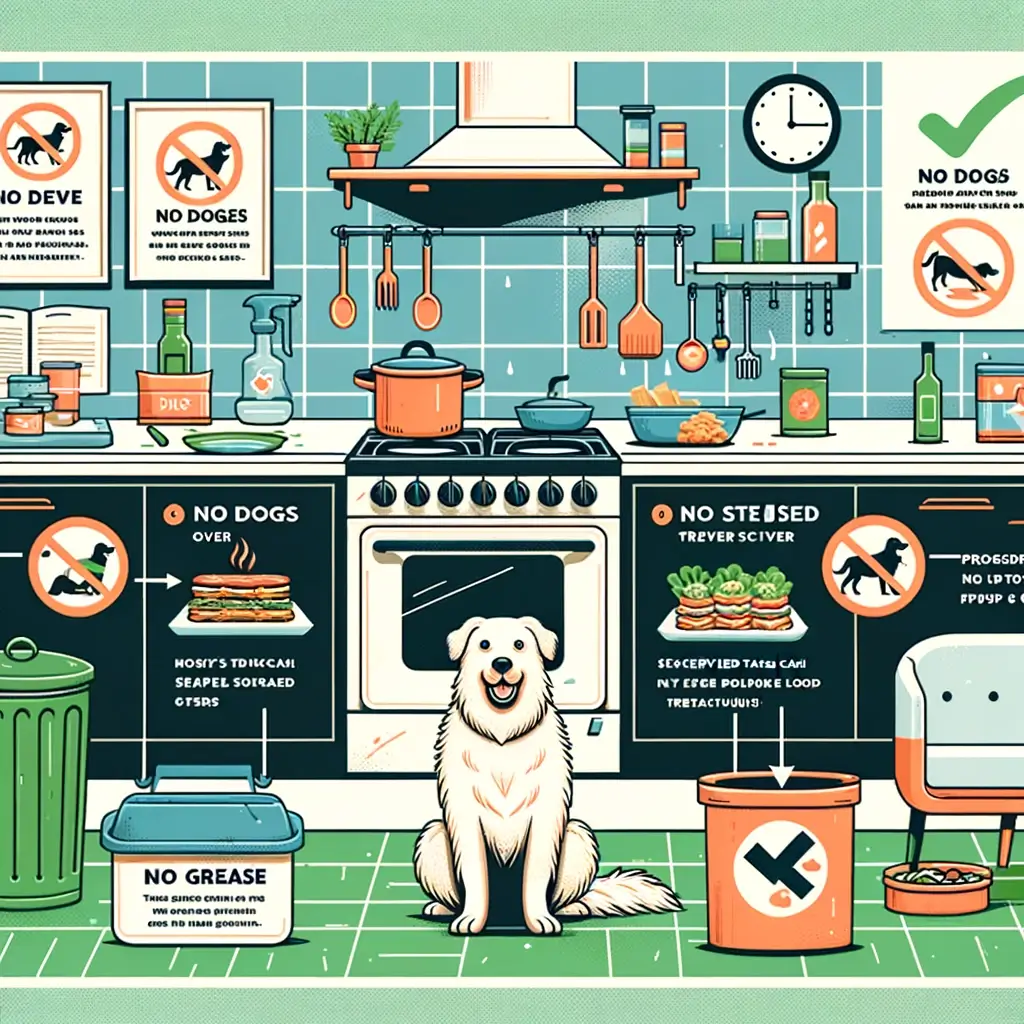
What if my dog just ate a bunch of bacon grease?
If your dog got into bacon grease or meat drippings, he may experience vomiting, diarrhea, dehydration, and abdominal pain. You should immediately give him water to prevent dehydration and call your vet. They may recommend inducing vomiting if it just occurred, or treating his symptoms with medications and a bland diet. Limit his access to fatty foods in the future. Store grease in sealed containers out of paw’s reach.
What can happen if a dog eats oil?
Ingesting a large amount of oil, like vegetable, olive, or canola oil, can upset a dog’s stomach. Oil has a laxative effect which may lead to diarrhea. It can also cause vomiting as the body tries to expel the foreign substance. Make sure to store cooking oils securely and avoid giving dogs fried or oily foods which are difficult to digest.
What happens if a dog eats lard?
Dogs are often attracted to the smell and taste of lard. However, ingesting too much lard or animal fat can lead to pancreatitis and other gastrointestinal issues like vomiting and diarrhea. The high saturated fat content is very hard for dogs to digest. Prevent access to baked goods with lard, fatty meat trimmings, and grease containing animal fats.
Hi, I’m John and I love dogs. Ever since I was a kid, I always wanted to have a furry friend by my side. I grew up with a golden retriever named Max, who taught me a lot about loyalty, friendship, and fun. He was my best buddy for 12 years, and I miss him every day.
